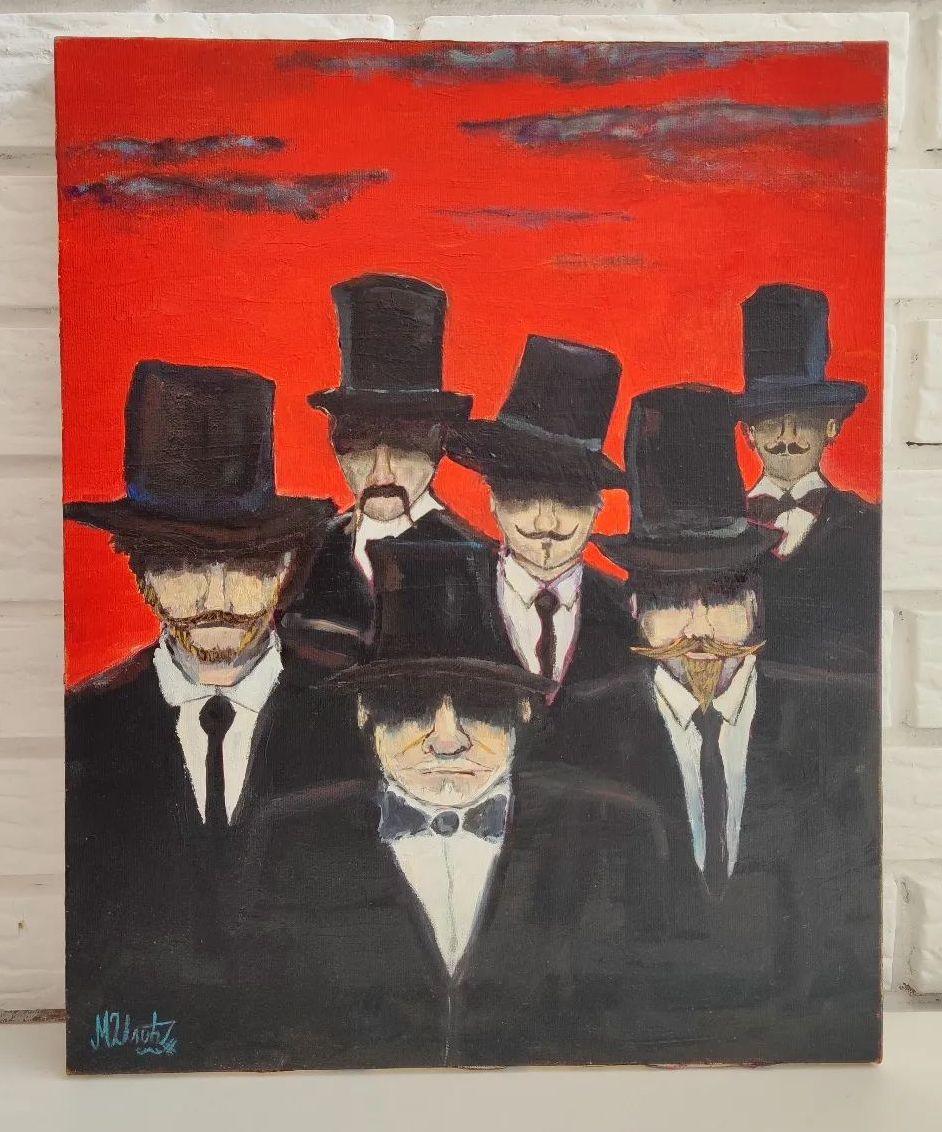In any segment of life, it is important to have role models to be able to upgrade and improve… The biggest role model for me is an unknown artist who, on the walls of the Cave of Altamira, felt the need to do something that no one had done before him
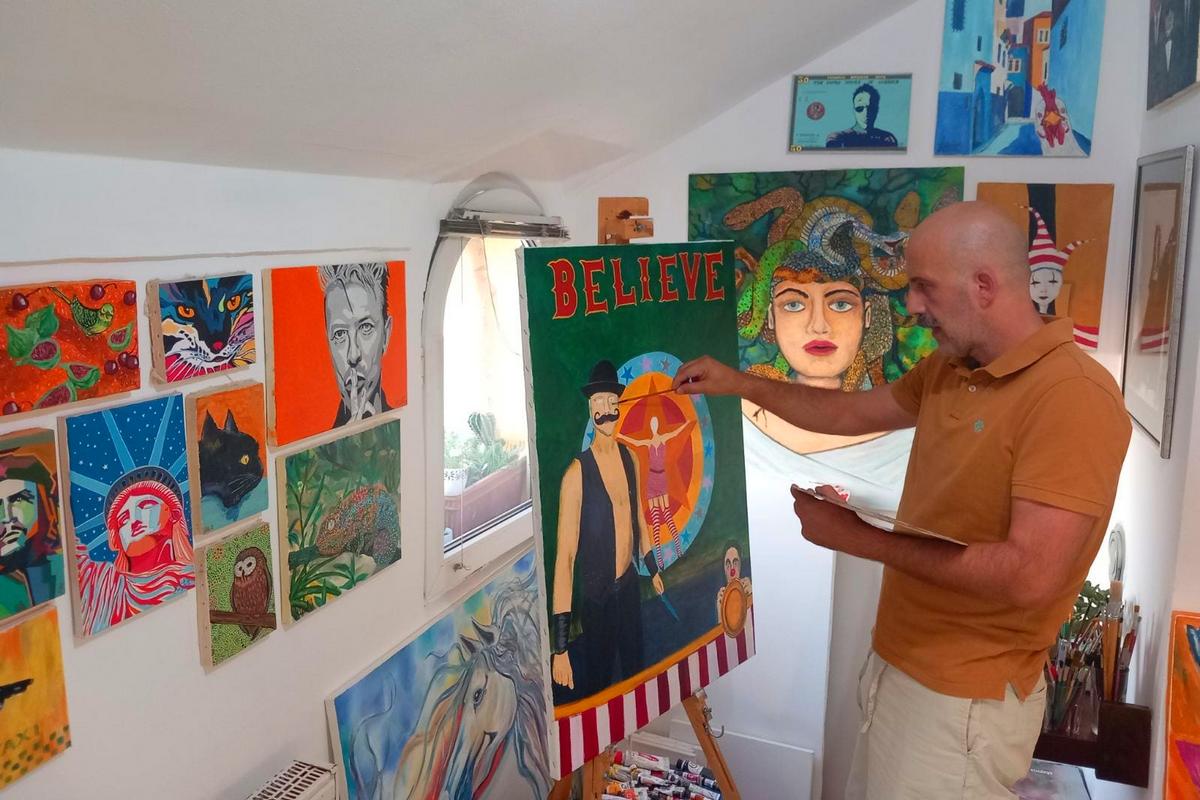
One of the iconic painters of abstract expressionism, Jackson Pollock, said that “painting is self-discovery – every good painter paints what they are.” The artistic style of the painter Miroslav Ilić from Kragujevac is so diverse that you will hardly be able to put him in any category – sometimes his paintings are a reflection of realism, sometimes they are esoteric, sometimes eclectic, and although only apparently simple, the more you look at them, the more you discover hidden dimensions, secret messages and surprising emotions in them.
We spoke with Miroslav in his art studio in Kragujevac about the nuances of the artist’s personality and creativity, the emotions that art evokes in the viewer, the necessity of inspiration in the life of every person and the desire for greater affirmation and dissemination of quality art.
DC / Was your decision to start painting spontaneous or the result of long-term inspiration?
The very decision to pick up a brush is probably a combination of coincidence and the need to bedeck my living space. I saw an abstract painting at a friend’s house and instantly realized that it would fit perfectly in my living room. Passing by a bookstore, I noticed that it was selling canvases and decided to try to paint something similar. I bought the biggest canvas I could find, paints and brushes and finished a painting in a single afternoon. The feeling itself was fantastic because I discovered a part of myself that I didn’t know existed. My friends liked the painting and wanted to have something similar. That’s how it all started.
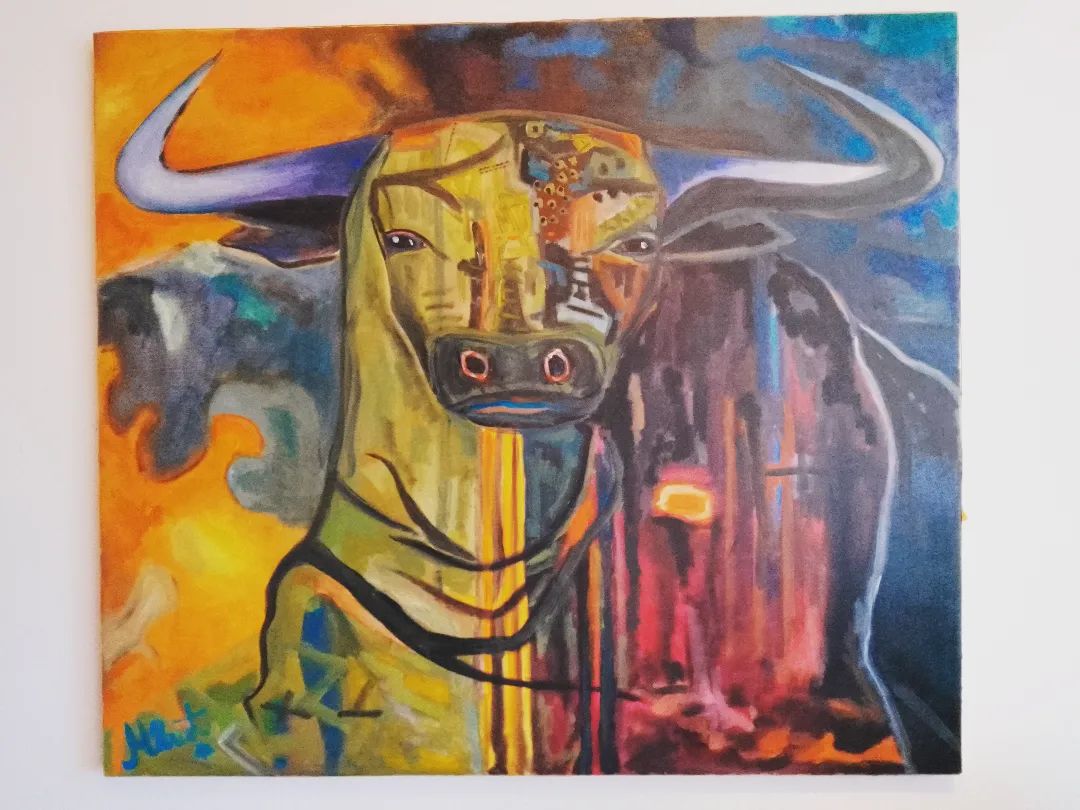
DC / When faced with a blank canvas, what’s your first thought?
My first thought is “I finally get to starting to play with colours”. I don’t see the canvas as white but as a finished painting. I just surrender to the current feelings and let the colours and brushes fill the void. Probably every painter has his own way of creating. I just empty my mind and the only thing I do is focus on the tip of the brush. As if entering a half-sleep state, time slows down and I don’t even know where the painting will take me.
DC / Are you too demanding and hard on yourself when painting? Does perfectionism somewhat hinder your creative process?
I don’t consider myself too demanding because I enjoy creating and I’m not a perfectionist either. The only thing I adhere to is that, when I paint, I am the most honest with myself and the canvas and want to do my best with the talent I have been given. I am absolutely aware of my capabilities and imperfections. Maybe that motivates me to continue – not knowing where inspiration will take me next.
I like the freedom to express myself without a filter and I want it to stay that way as long as possible
DC / Which painters are your role models and how important is it for a painter to have a role model considering the highly individual nature of painting?
In any segment of life, it is important to have role models to be able to upgrade and improve. I gravitate toward and love the Impressionists. The biggest role model for me is an unknown artist who, on the walls of the Cave of Altamira, felt the need to do something that no one had done before him. I often think about him and the need to express his feelings that we understand after so much time has passed, regardless of what language we speak. It is one of those moments when we as a species made the biggest leap forward.
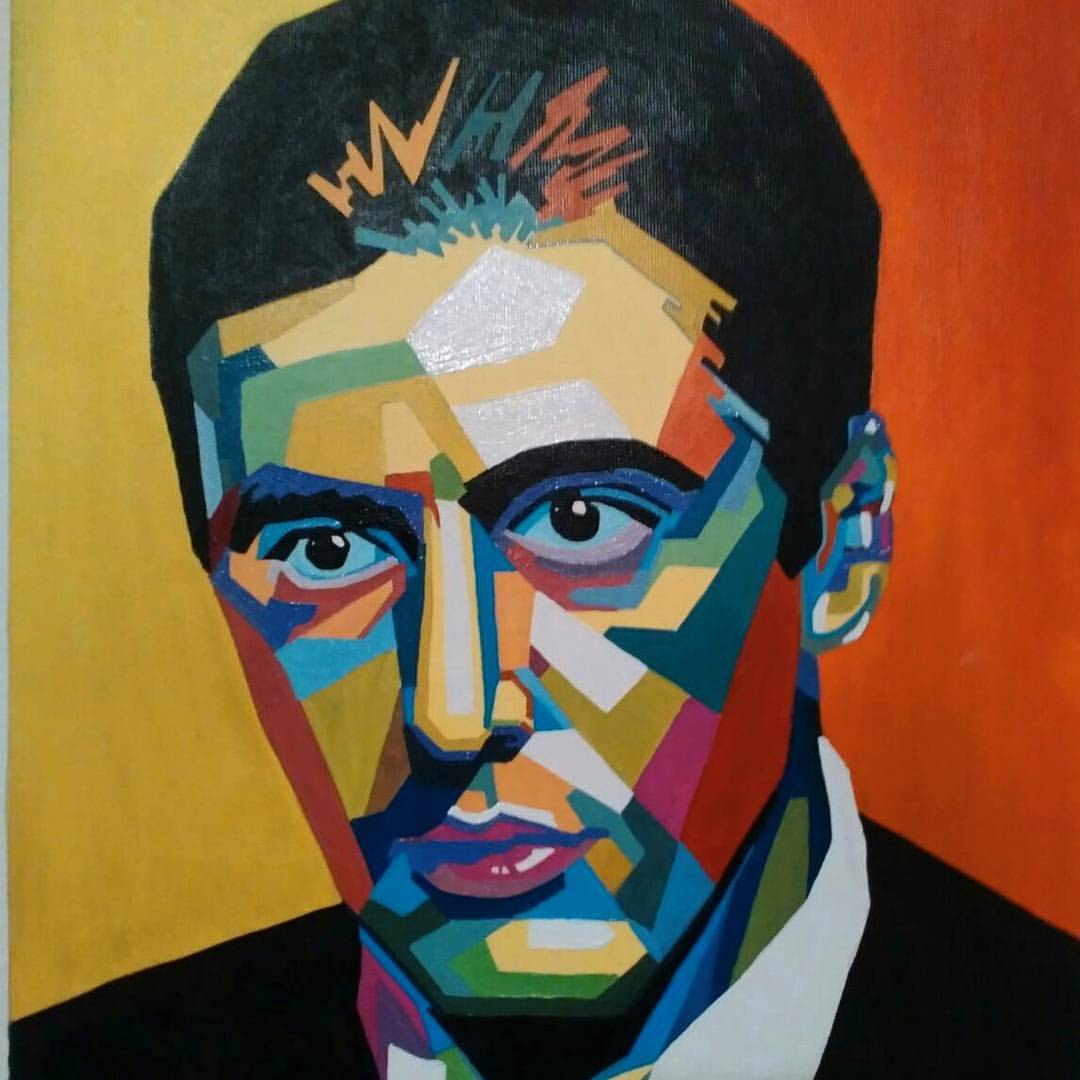
DC / Could you describe your painting style to us?
In short, I would describe what I do as wandering and enjoying discovering new techniques, directions and types of art. I don’t have a set direction so I can experiment. We all have this desire for uniqueness and change within us. This is currently my way of channelling that aspiration.
DC / Today’s world is very complex and oversaturated with information and events. Is this a good thing for painters since many of them draw inspiration from the society that surrounds them?
It is inevitable that we live in a digital age and that we are oversaturated with information. The way we process and filter them is highly personal, as is inspiration. This gives us great opportunities to develop ideas and look at current inspiration from many different angles.
DC / A painter once said that “no good and interesting work of art can be created without sincere, deep and lived through feelings”. Do you agree?
I agree that art arises from certain feelings that the artist is ready to share with everyone. Academician Vladeta Jerotić said that “the only thing we own is what we can give”. The moment the work is finished and given over to the observer, the artist no longer matters. The artwork begins its life and the observer then decides whether they like it or not. Of course, no two eyes are the same in this world, so everyone has the right to see and feel in a certain art piece what they want.
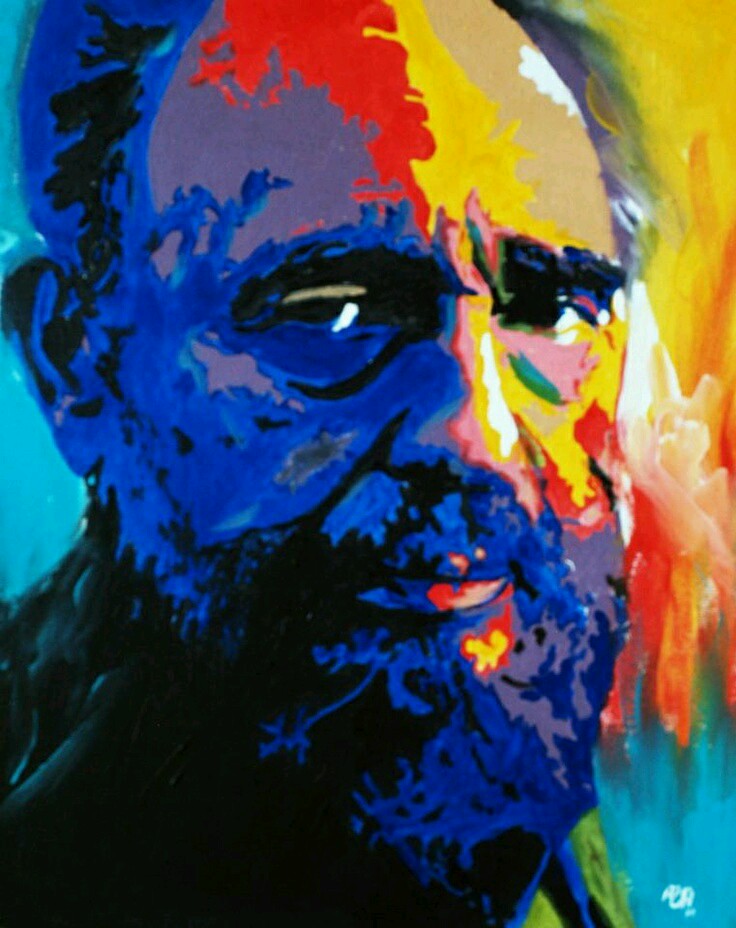
DC / Do painters experience the world around them differently or deeper? Do they notice nuances that we “mortals” cannot?
I’m not sure that a painter or any other artist perceives their surroundings differently. I think that we just have a clearer vision or need to send out what we feel to the environment, each according to the type of art they do. I am most fascinated by the feedback I get. No one is indifferent to any work of art and everyone has the right to give their opinion about it.
DC / Have you ever doubted your decision to become a painter?
I don’t question myself, but rather follow an inner feeling and trust it. I want to do what I love and what fulfils me. I would like art to be my only occupation and the question is how much freedom I would have in that case.
DC / Painter Vladeta Deletić said that “talent is not recognized but accepted.” You are talented, but also a self-taught painter. Do you have a genetic predisposition to painting, that is, has anyone in your family ever been involved in painting or art in general?
In my case, the talent to do art is not hereditary. If I didn’t have it, I’d probably be an athlete. This is how I accepted this gift and I am trying to constantly upgrade and affirm myself. Also, I consider the fact that I am self-taught as my extremely positive characteristic. I am not moulded and bound by any norms. I like the freedom to express myself without a filter and I want it to stay that way as long as possible.
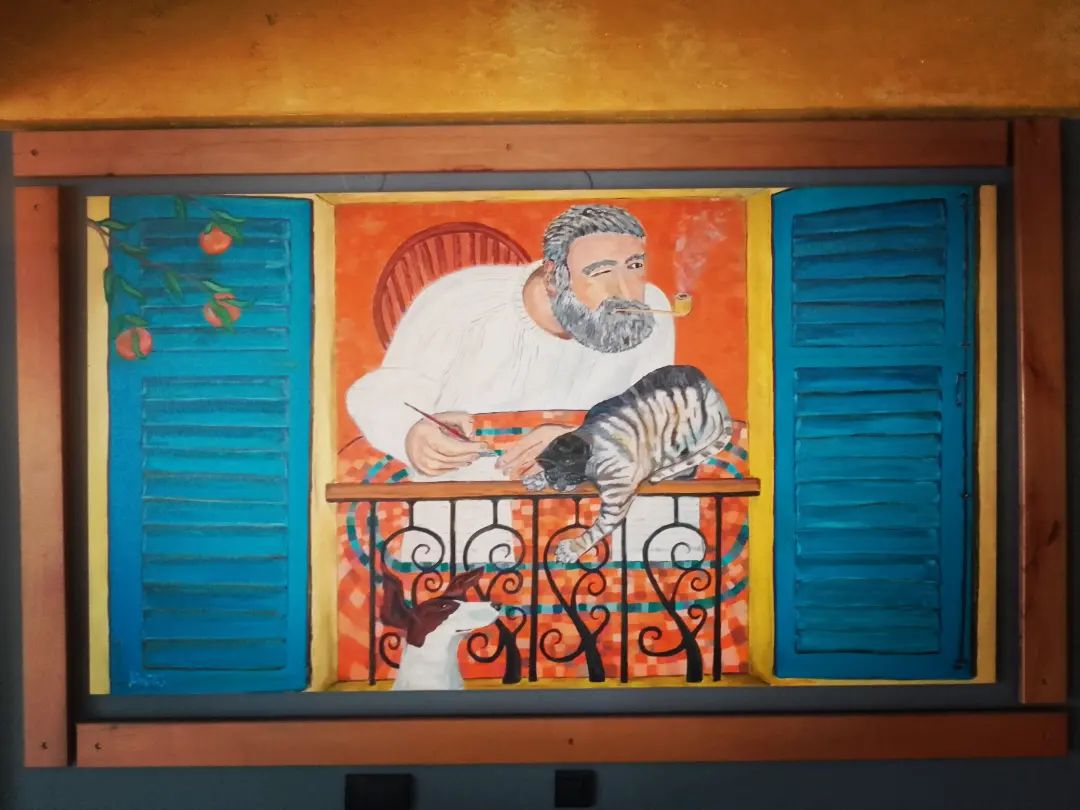
DC / Is the digital world your ally or rival in painting?
The modern digital age is definitely our great ally, especially in art. Now, with just one click, someone on the other side of the world can get to know my work. Communication is not a problem either, even if we speak completely different languages. The only problem in this ocean of information, applications and social media is to successfully fight for one’s own visibility. I even consider that as an advantage of the digital age because if something has good value, it has to be noticed by someone sooner or later.
DC / Your creativity is multi-layered. You don’t just paint, you decorate and transform lamps, paint masks, and make unusual pots, clocks and mosaics… You are known for being able to breathe extraordinary life into a completely ordinary object. How did that come about?
It all started with painting. The very realization that a white canvas can be transformed into a beautiful painting that will decorate someone’s living space encouraged me to try to breathe life back into discarded and unusable objects. Creating a new-use value, where I make flower pots out of glasses, a lamp out of marbles or a mosaic out of broken plates, perhaps inspires me the most. When I make something that has been discarded into something worthwhile again, it encourages me to change and constantly improve as an artist.
I am most fascinated by the feedback I get. No one is indifferent to any work of art and everyone has the right to give their opinion about it
DC / You were born and live in Kragujevac. How much do you enjoy creating in a smaller environment? What are the advantages and disadvantages of that for an artist? Is it harder to establish yourself in Serbia as a painter if you live in a smaller town?
Kragujevac, and especially Šumadija, is a beautiful place for a modern man to live. I’m used to this town and it’s used to me. A friend told me recently that Šumadija is “the Serbian Tuscany”. Regarding inspiration, it doesn’t matter where I am, but how to use it in the best possible way. The very act of creation is the most important to me, while affirmation and sales come after if the people like the artwork I create. I am an optimist, so even in flaws I look for the positive side.
DC / Where can people buy your paintings?
Currently, my paintings can be viewed and bought on my social media – Instagram page @art_by_mustache and Miki’s Art Workshop on Facebook
